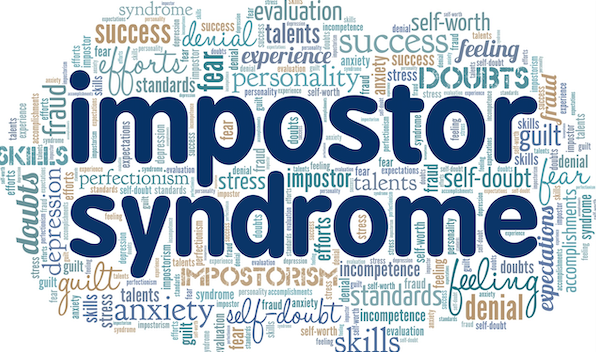Hi Everyone
It’s been almost an year i wrote my last blog, so here i am to share my experience about Gratefulness, Imposter Syndrome & Burnout

Gratefulness (or) Gratitude

Be Grateful for what you have ✨
Numerous studies have shown that practicing gratitude regularly can contribute to improved well-being and psychological functioning. Here are some ways in which gratefulness can benefit mental health:
-
Expressing Gratitude Activities: Writing heartfelt thank-you notes to people who have positively impacted your life. It could be a family member, a friend, a mentor, or a colleague. Let them know how much you appreciate them and their actions. Expressing gratitude activates the brain’s reward system. This can help elevate your mood and promote a more positive outlook on life.
-
Set Realistic Goals: Set achievable goals that align with your abilities and interests. When you accomplish these goals, you’ll experience a sense of competence and boost your self-esteem. Start with small, attainable goals and gradually work your way up. By recognizing and acknowledging the good things in your life, you develop a more positive self-perception and greater confidence.
-
Seek Support: If you’re struggling with low self-esteem, consider seeking support from a trusted friend, family member, or therapist. They can provide guidance, encouragement, and help you work through any underlying issues contributing to low self-esteem.
-
Celebrate achievements: Take the time to acknowledge and celebrate your accomplishments, no matter how small they may seem. Recognize your efforts and give yourself credit for what you have achieved.
-
Surround Yourself with Positive people: Spend time with supportive and uplifting individuals who value and appreciate you. Avoid toxic relationships that bring you down or undermine your self-esteem.
Imposter Syndrome (or) Self Doubt

Investing in yourself leads to success! 🔥
“No one has it all figured out”. Remember that even the most successful individuals have experienced self-doubt. You’re not alone in feeling like an imposter. Here are some ways to deal with imposter syndrome.
-
Normalize Self-Doubt: Understand that imposter syndrome is a common experience, and many high-achieving individuals have struggled with it. Recognize that feeling like an imposter doesn’t mean you are one it’s often a sign of growth and pushing yourself out of your comfort zone.
-
Embrace Vulnerability: Share your feelings of imposter syndrome with trusted individuals. Opening up about your insecurities can not only provide relief but also allow others to offer support, empathy, and reassurance.
-
Writing Journals: Create a record of your accomplishments, big and small. Whenever you achieve something or receive positive feedback, write it down. Reflecting on this journal can serve as a powerful reminder of your abilities and achievements during moments of self-doubt.
-
Focus on Continuous Learning: Imposter syndrome can be fueled by a fear of being exposed as inadequate. Combat this by actively pursuing opportunities for growth and learning. Invest in your professional development and acquire new skills to boost your confidence.
-
Help Others and Share your Knowledge: By mentoring or assisting others in their journey, you can gain a sense of validation and realize the value you bring. Helping others can also help you gain perspective and build confidence in your own abilities.
Burnout (or) Exhaustion

Sometimes the most productive thing you can do is relax 😌
Burnout occurs when your body and mind can no longer keep up with the tasks you demand of them. Don’t try to force yourself to do the impossible. Delegate time for important tasks, but always be sure to leave time for relaxation and reflection. Here are some ways to Deal with Burnouts.
-
Recognize the Signs: Be aware of the symptoms of burnout and acknowledge when you’re experiencing them. Accepting that burnout is a real issue is the first step toward recovery.
-
Set Boundaries: Establish clear boundaries between work and personal life. Avoid excessive overtime, learn to say no to additional responsibilities when necessary, and create a healthy work-life balance.
-
Take Breaks and Vacations: Allow yourself to take a break from the source of stress. Take a vacation, a day off, or even a short break during the day to recharge and reset. Disconnect from work-related activities and engage in activities you enjoy.
-
Reassess and Prioritize:: Break down your tasks into smaller, manageable chunks, and utilize effective time management techniques such as creating to-do lists, setting deadlines, and prioritizing tasks. This can help you regain a sense of control and reduce feelings of being overwhelmed.
-
Take Care of Your Physical Health: Ensure you’re taking care of your physical well-being by eating nutritious meals, staying hydrated, and getting regular exercise. Physical health plays a significant role in managing stress and preventing burnout.
Interesting Reads📝
- Will I ever get better?
- Overcoming Self-Hate & Regrets
- Creativity, Self-Doubt & Doing Remarkable Work
- Dealing with Imposter Syndrome
- Advice I wish I received when I started in security

Thanks a lot for reading !!!.